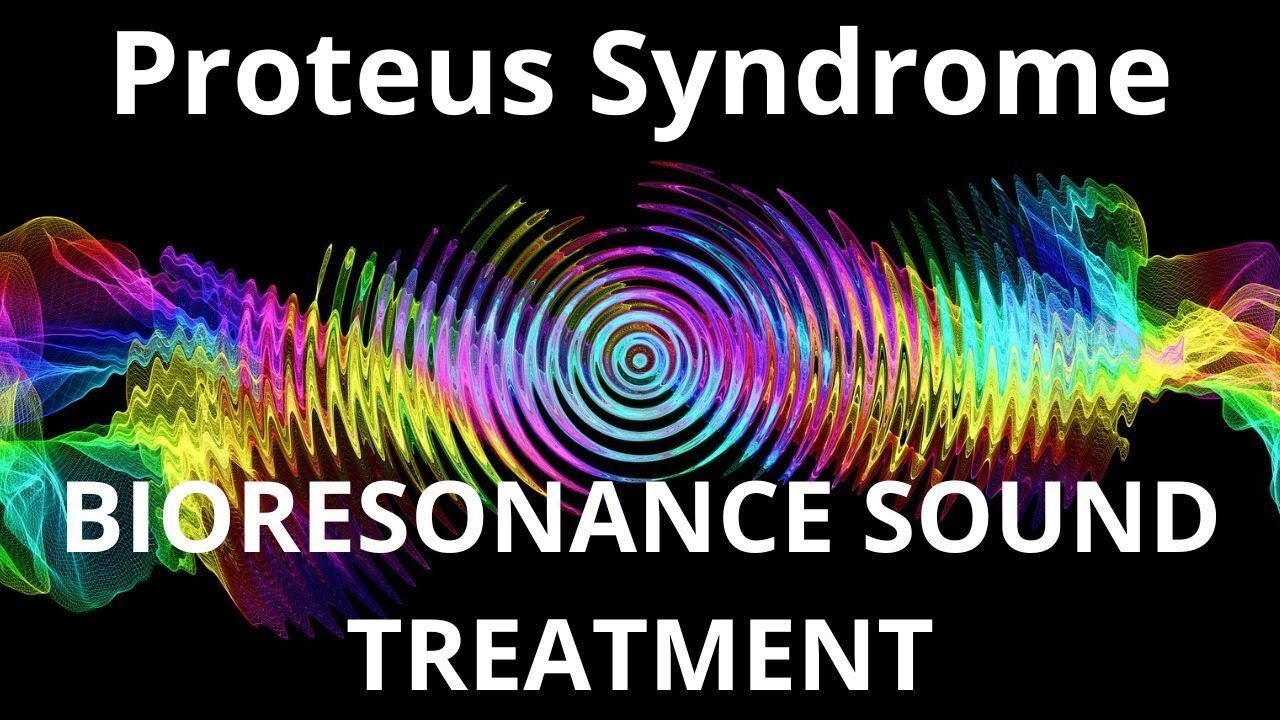Premium Only Content

Proteus Syndrome_Sound therapy session_Sounds of nature
#resonantfrequencytherapy #ProteusSyndrome #adjunctivetreatment #traditionalmedicine #holistictherapy #noninvasivetreatment #painmanagement #inflammationreduction #mobilityimprovement #integrativeapproach #naturalhealing #alternativetherapy
Proteus Syndrome is a rare genetic disorder that causes abnormal tissue growth, leading to various physical and medical challenges. While conventional medicine plays a crucial role in managing the symptoms of Proteus Syndrome, there is growing interest in incorporating complementary therapies like resonant frequency sound therapy.
Resonant frequency sound therapy offers a holistic approach to treating Proteus Syndrome, addressing the physical, emotional, and spiritual well-being of individuals. By utilizing specific sound frequencies, this therapy aims to restore balance and harmony within the body, facilitating the body's natural healing processes. It complements conventional medicine by providing a comprehensive approach to care.
A significant advantage of resonant frequency sound therapy is its non-invasive and safe nature. Unlike invasive procedures, such as surgeries, this therapy involves the use of sound vibrations and frequencies to stimulate healing. It is a suitable option for individuals with Proteus Syndrome who may not be candidates for invasive treatments or prefer non-pharmacological interventions.
Proteus Syndrome often causes chronic pain due to abnormal tissue growth and musculoskeletal issues. Resonant frequency sound therapy has shown promise in managing pain associated with the condition. By targeting the affected areas with specific frequencies, it helps to alleviate pain by promoting relaxation, reducing muscle tension, and improving circulation. Incorporating sound therapy into the treatment plan can enhance pain management alongside conventional pain medications.
Inflammation is a common symptom of Proteus Syndrome, causing discomfort and potentially contributing to further complications. Resonant frequency sound therapy has been found to have anti-inflammatory effects, helping to reduce inflammation in the body. The specific frequencies used in this therapy can aid in calming the immune response and promoting healing, thus reducing inflammation and improving overall well-being.
Proteus Syndrome can significantly impact mobility and physical function. Resonant frequency sound therapy can play a role in improving mobility by stimulating the body's natural healing mechanisms. The vibrations and frequencies used in this therapy help to relax muscles, improve blood flow, and reduce tissue tightness, thereby enhancing flexibility and mobility.
Living with Proteus Syndrome can be emotionally challenging, and resonant frequency sound therapy can provide much-needed emotional support. The soothing sounds and vibrations promote relaxation, reduce stress levels, and improve overall emotional well-being. This therapy can help individuals cope with the emotional aspects of the condition and contribute to their overall quality of life.
Conclusion:
Incorporating resonant frequency sound therapy as an adjunctive treatment for Proteus Syndrome, in combination with conventional medicine, offers a promising approach to holistic care. The non-invasive nature, pain management benefits, inflammation reduction, improved mobility, and emotional support make it a valuable addition to the treatment plan.
In my store you can purchase unique medicines:
https://store11998180.company.site/
You have the opportunity to support the channel:
https://destream.net/live/RadSiarAl/donate
-
 29:59
29:59
BIORESONANCE SOUND THERAPY
1 month agoCancer Lymphoplasmacytic _ Sound therapy session _ Sounds of nature
1131 -
 1:07:49
1:07:49
Jeff Ahern
5 hours ago $11.48 earnedThe Sunday Show with Jeff Ahern
31.7K20 -
 LIVE
LIVE
Spartan
49 minutes agoPro Halo Player | Ranked
65 watching -
 1:10
1:10
Damon Imani
3 hours agoAna Navarro Said Trump Wants To Make America WHITE Again - Got Dismantled by Damon!
2181 -
 LIVE
LIVE
Joker Effect
40 minutes ago🚨MASSIVE ANNOUNCEMENT🚨- Changes coming! Massive Rumble Twitter Space Tomorrow! PUBG GAMEPLAY! ECT
476 watching -
 9:36
9:36
MattMorseTV
5 hours ago $0.76 earnedThe EU just FOUND OUT.
1.62K8 -
 LIVE
LIVE
Meisters of Madness
4 hours agoA Casual Sunday
14 watching -
 LIVE
LIVE
Misfit Electronic Gaming
1 hour ago"LIVE" " Road to 1000 Need ONLY 39 away Trying to Fix Electronics, Then some gaming.
11 watching -
 LIVE
LIVE
Biscotti-B23
1 hour ago🔴 LIVE ANIME HORSE RACING!? 🐎 MEMBERS MAYHEM - TEKKEN 8, RAINBOW SIX & MORE
3 watching -
 2:36:20
2:36:20
The Quartering
4 hours agoPlaying Expedition 33 Talking About Dan Bongino
233K11